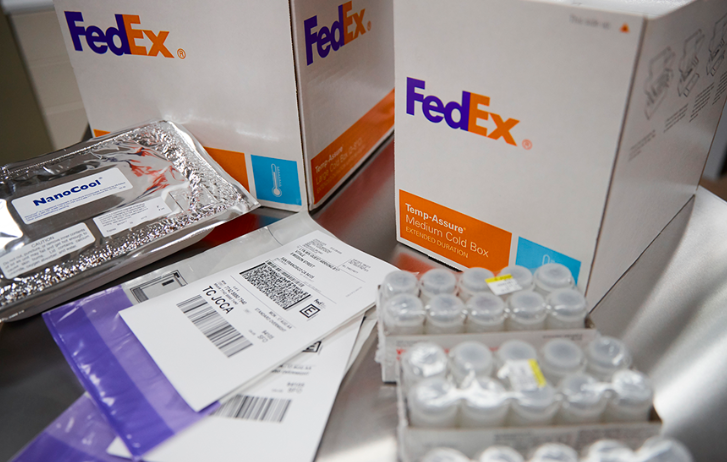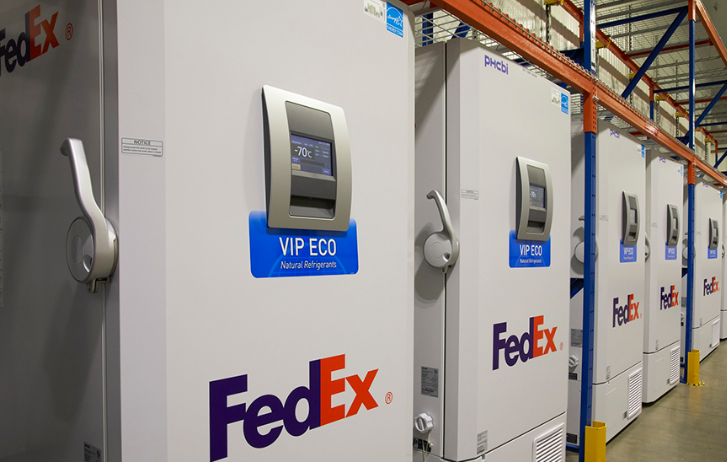
How To Build Resilient And Reliable Healthcare Supply Chains
By Kawal Preet | April 22, 2022
Logistics sector leaders are set up to help healthcare providers smooth the pain points in supply chain management in an uncertain world.
As the COVID-19 pandemic continues to evolve, new, more transmissible variants present a fresh yet familiar set of challenges to global healthcare supply chains, within which Asia plays an increasingly pivotal role. The need for robust and reliable supply chains remains, yet the difference between intelligent inventory management and inventory shortages is a fine one. The outcomes of both impact healthcare workers and their patients.
Staying cost-effective with end-to-end logistics solutions
The Omicron variant sparked an additional unpredicted uptick in demand for medical goods and services across the globe. This again put placed strain on many public and private healthcare administrators to manage inventory levels at their facilities. At the same time, drug manufacturers and research centers need to ensure they have enough raw materials to continue clinical trials and medicine production.
Furthermore, the easing of pandemic-related fiscal stimulus is set against the backdrop of global supply chain constraints. Healthcare providers are increasingly concerned that procurement costs of medical supplies will increase under the current inflationary macro-environment.
With supply chain bottlenecks expected to continue, healthcare providers need to eliminate delivery crunches and mitigate inflationary inventory costs to help maintain their services to their patients and customers. Efficient logistics can help tackle both challenges.
Logistics companies reliant on commercial airline capacity are sometimes challenged by the same vulnerabilities that healthcare providers face. However, companies that operate their own global air cargo fleet are fully in the driver’s seat. At FedEx, we have the necessary agility to respond to urgent needs for same-day or next-day delivery of essential medical supplies. We can flex capacity to circumvent potential bottlenecks.
We can also provide contingent warehousing for temperature-sensitive vaccines, diagnostic reagents or test samples. For instance, FedEx has an extensive point-to-point distribution network. Proprietary sensor-based tracking technology allows near-real time tracking of every shipment throughout its journey. This, in turn, reduces the reliance on inventory stockpiling.
Asia’s growing role in the global healthcare supply chain
Amid the rising demand for critical medical supplies and vaccines, the region’s manufacturers have proven to be resilient. According to the Organization for Economic Co-operation and Development (OECD), at the start of the pandemic, China manufactured approximately half of the world’s face masks. But other countries in the region – such as Vietnam, Malaysia and Thailand – are also important global producers and exporters of personal protective equipment, including gowns, hair covers and gloves.
The pandemic has also encouraged global vaccine makers to expand their production capabilities in Asia. German biotechnology company BioNTech has announced plans to build a vaccine factory in Singapore, and U.S.-based vaccine maker Moderna is eyeing a US$200 million investment to construct a manufacturing plant in Seoul. International logistics providers will need to be ready when these facilities open. FedEx is well placed to support with its extensive network and more than twenty years of building our healthcare solutions and expertise.
To stay ahead of overall demand, FedEx made one of its most significant network expansions last year adding six new routes between Asia, the U.S. and E.U. markets allowing greater agility in handling cross-border shipments. Our Life Science Centers (LSC) in Singapore, South Korea, and Japan also play an important role in providing inventory management solutions for various vaccine demand scenarios.
The LSCs offer large-scale temperature-controlled warehousing as well as domestic and international distribution for vaccines. Operations specialists at the centers coordinate warehousing, cold chain requirements and distribution needs, helping to minimize clearance times. This means that essential medicines and equipment can be delivered safely and on schedule.
Future supply chain enhancements through the power of data
It’s clear that the global healthcare supply chains need to develop further to meet demand as the pandemic evolves. Sensor-based technology is working in conjunction with artificial intelligence, built into solutions like FedEx Surround. This demonstrates how we can continuously innovate to better protect the integrity of healthcare shipments and minimize wastage.
No one can predict when, where, or if new COVID variants will emerge. The logistics industry isn’t waiting to find out. We’re going all-in to build smart, efficient, and responsive networks for what’s next in the healthcare industry.
SHARE THIS STORY
- Generative AI: A New Frontier
- How To Ship A Giant Panda
- How To Make Freight Shipments Work For Your Small Business
- The Rise Of Intra-Asia Trade: Opportunities In The China-Southeast Asia Corridor
- Where Do Old Planes Go When They Retire?
- What’s So Dangerous About Coconuts? Your Guide To Dangerous Goods Logistics
Sign up now and save on your shipping rates!
Sign up now and earn discounts by shipping instantly with FedEx Ship ManagerTM at fedex.com.
Recommended For You

How To Manage Healthcare Supply Chain Risk Post COVID-19
Are you aware of all the factors that can impact how you manage your global healthcare product shipments?
Read More
How New Technologies Deliver Smarter Supply Chains
Emergent technologies like AI are making supply chains smarter, more resilient and agile. We dive deeper into their potential for FedEx and Asia SMEs.
Read More
How To Get Greater Visibility Into Supply Chain Sustainability
FedEx Sustainability Insights helps businesses track emissions and measure logistics impact for more sustainable supply chain management.
Read More

